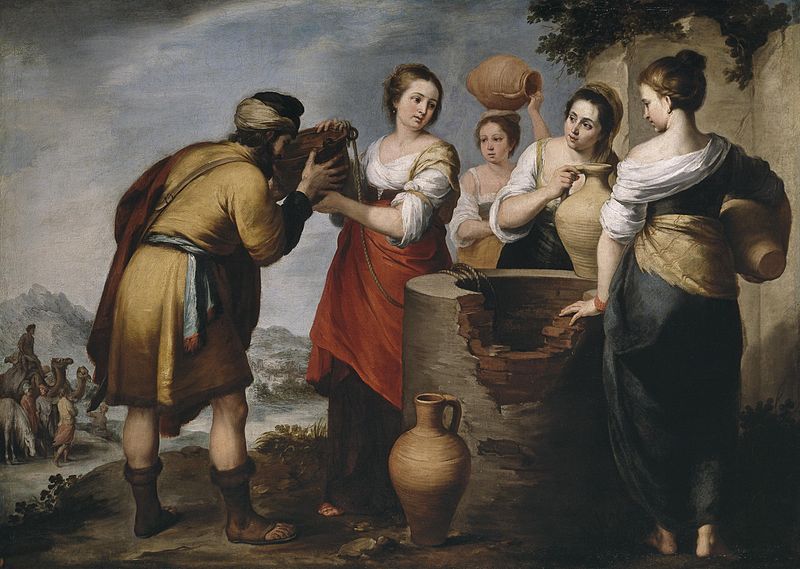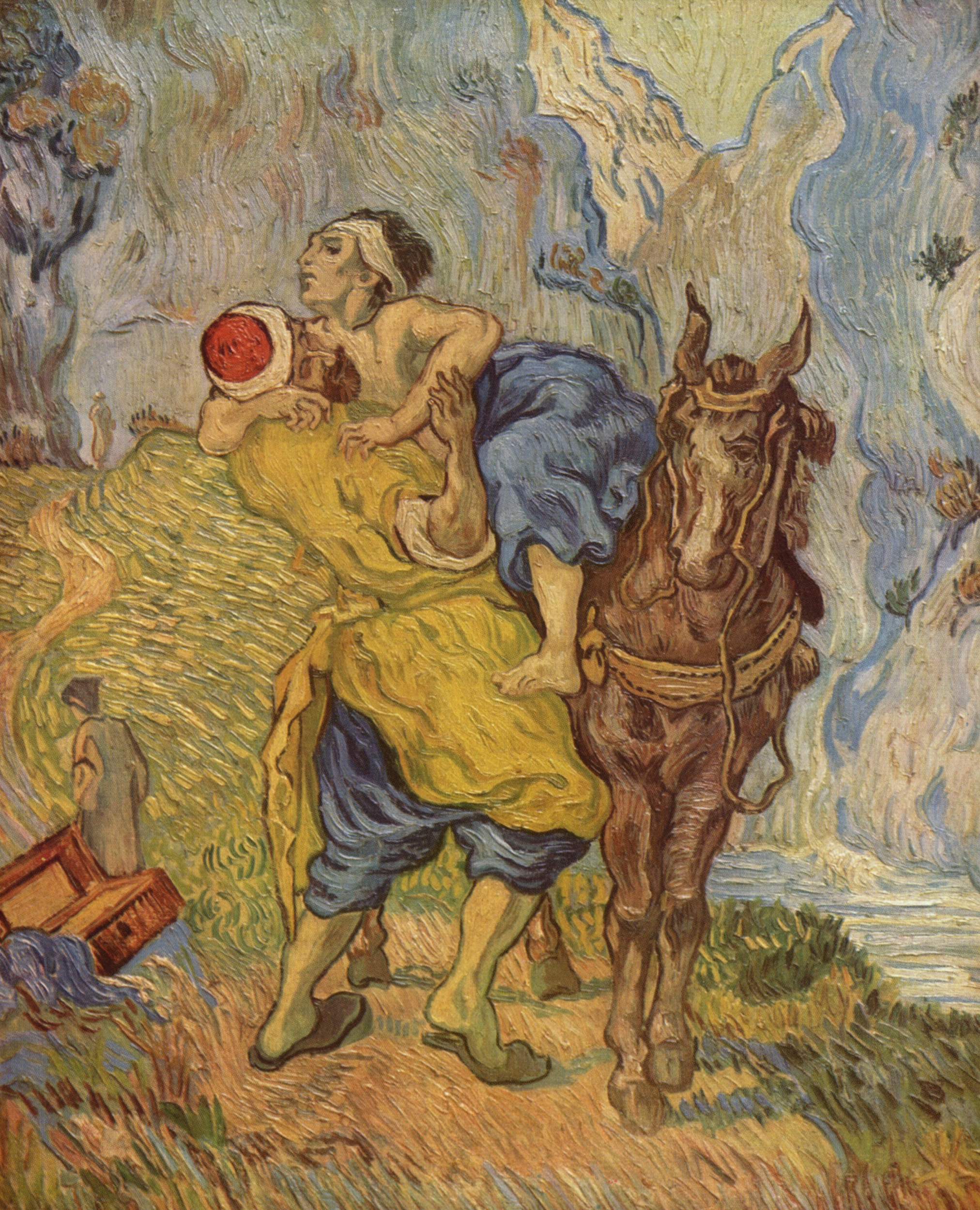Weight for it
Chrysta Brown
 The story was told to me with flannelgraph figures that effortlessly hopped from one point on flannel to the next. Abraham figured that it was time to find a wife for his son, so he sent his servant back to the old neighborhood to find a wife who had home-training similar to his own son’s. The servant prayed that the right girl for his master’s son would make herself known by giving water to him, his team and all of their camels. The servant made several turns that led him to Rebekah. He asked her for a drink water, and she gave it to him, and offered to get water for his team and their camels until they weren’t thirsty. This was a story about asking God for help with big decisions.
The story was told to me with flannelgraph figures that effortlessly hopped from one point on flannel to the next. Abraham figured that it was time to find a wife for his son, so he sent his servant back to the old neighborhood to find a wife who had home-training similar to his own son’s. The servant prayed that the right girl for his master’s son would make herself known by giving water to him, his team and all of their camels. The servant made several turns that led him to Rebekah. He asked her for a drink water, and she gave it to him, and offered to get water for his team and their camels until they weren’t thirsty. This was a story about asking God for help with big decisions.
The night before my dance students were congregating in the lobby giving each other the type of hugs where one person is lifted off the ground and spun in circles. “AH!” one carrier exclaims mid-turn. “You are so light!”
“Hey, how much do you weight?” I ask.
“Um…” the smaller shrugs, “eighty-something pounds.”
“Come here for a second.” She walks over to me without hesitation. “We’re going to do a lift,” I tell her, and she agrees because she is a dancer and this is what we do to each other. We give, take, and share weight. She prepares to bend her legs in a pliè to help get her high into the air. “No, just give me dead weight.” Her limbs flop and I hoist her up by her waist.
“What are we doing?” she asks dangling in midair.
“I’m buying a couch tomorrow, and I don’t know if I can lift it. It weighs more than you though, so I’m really just preparing you for partnering.” I laughed.
“Do you have help?” asked the girl’s mother, who was standing nearby.
I shook my head. I was still new to the area, a recent transplant who hadn’t yet gotten all of the necessary home furnishings or friends to invite over to enjoy them, but I still had hope. I put the tiny dancer down, and we all sauntered out into the night air.
The IKEA trip itself was uneventful. I’d shopped online and figured out where in the store’s underbelly my couch was and could therefore avoid having to meander through a store that is the size of some small cities. I could skip the carelessly blended together consonants that someone assures me mean things like “loft bed,” “TV stand,” “duvet cover with clowns,” and the misleading sign that says shortcut, but really just leads to more words I do not understand.
In the warehouse, I held the cart in place with one foot and pulled then dropped the couch onto the basket. An IKEA associate jammed the about 60 percent of it into my Corolla and tied the trunk down. “Good luck getting this home,” he said in a tone that I perceived to be dripping with doubt.
To get to the door of my apartment building, one must walk about 30 feet uphill. It is hard on a normal day because there is no oxygen in the Colorado air. It is even harder when you have a couch. “You don’t have to carry it the full 30 feet,” my dad assured me when I expressed concern about how I was going to get the couch from the warehouse to my car to my apartment building to my actual apartment. “You only have to move it a few feet at a time.”
A few feet a time sounds like a nice idea when it is only an idea and there is no actually weight involved. It sounds possible, before you actually have to attempt the task. Half-way through the task, it sounds downright stupid. I tried pushing. Then, after my straight path went awry and I almost pushed the couch into a bush, I tried pulling and end up ripping several holes into the protective plastic cover. I tried creating a sort of sled out of cardboard. The couch moved a bit; the cardboard stayed put. I tried praying.
I adjusted the cardboard and hugged the frame and pulled it backwards. Adjusted, hugged, and pulled. I heard voices exit the apartment building, and I felt hope. It must have been how the beaten, and robbed man from the Good Samaritan story felt when he heard footsteps approach. The voice sighed. “Can I just get past you?” I let the weight of the couch lean on me and tried to make our join form small enough for the man and his companion to get by. I watched them converse around the cardboard, the plastic, the couch, and me. I watched them walk away. My heart beat several levels lower.
Here’s the math. A camel can drink an average of 20 gallons of water a day. A gallon of water weighs about 8 pounds. There were ten camels. This makes for a total of 1,600 pounds.
My questions are as follows: How long did it take Rebekah to gather and carry over a thousand pounds of water? How many trips did it take for her to regret her offer? Did it occur to any of the people within visual range to offer assistance, not because she was a woman, but because over a thousand pounds of water is kind of a heavy load for anyone to deal with alone.
I do not understand this story. The servant could have prayed for any type of sign and the story could have still ended with the desired wedding and moral intact, but instead, he prayed a prayer that placed a 1,600-pound burden on someone's shoulders and he stood by watched her suffer through it all by herself.
But she did it. She carried the water and did it well enough to warrant being someone's else bride and, according to an internet commentator I read once, she did so quietly and without complaining. She survived the burden, one gallon at time.
